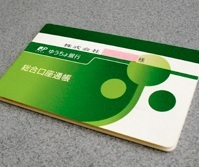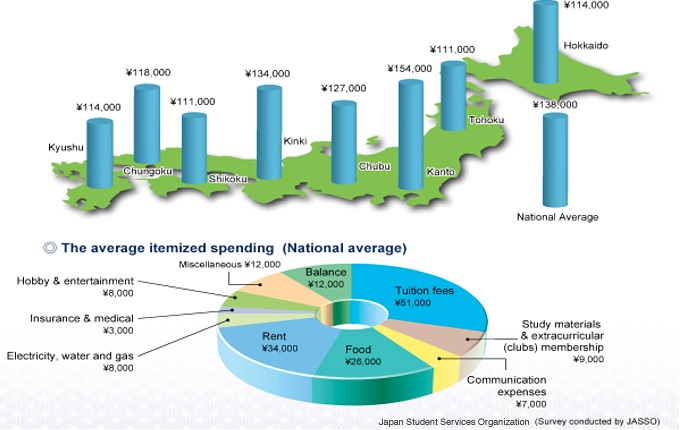LIFE IN JAPAN: ADVISE AND INFORMATION
Life in Japan, or any foreign country, is an exciting challenge. It may also prove to be overwhelming at times. At Motivist Japan, we are here to help you each step of the way, be it for paperwork or simply things about your daily life. We do not let you down once you are in Japan. But here are various advice beforehand, about life in Japan.
INDEX:
Healthcare
Insurance
Safety
Transportation
Telecommunication (phone, internet, post)
Leisure
Currency
Money: shopping, saving money
Means of payment
Opening a Bank Account
Cost of living
Working in Japan
Maintaining your place
Leaving your apartment
Driving licence
Having a mobile phone
Miscellaneous (personal issues)
Healthcare:
For information about Healthcare insurance, please click here.
Insurance:
If you would like to be covered for injuries or damages caused to others, you need to subscribe to a private personal liability insurance.
Safety:
Japan is known as one of the safest country in the world however crime is still a possibility even in the safest country. Always exercise caution especially if you are living alone. Always lock your door and check your visitors first using your home camera or door camera before opening your doors to strangers.
You can find “Koban” (Police stations) near most train stations, notably. Most streets are safe, even in the middle of the night.
Transportation:
The transportation system in Japan is excellent. All types of public transportation are very reliable and punctual.
 In big cities, you will find the Trains (JR)/Metro network very dense. Trains are very convenient – though you may want to avoid rush hours.
In big cities, you will find the Trains (JR)/Metro network very dense. Trains are very convenient – though you may want to avoid rush hours.
The bus system in big and small cities is reliable as well. And you can easily hop on a taxi if necessary.
Japanese use bicycles a lot. For small distances, this is the most used means of transportation.
When you want to travel around, you may also use the railways. The Shinkansen is not only fast but very comfortable. It will take you anywhere in Japan. If you intend to travel a lot inside Japan, you may want to consider buying a pass (“Japan Rail Pass“) (only under certain conditions, not for long term stays). For more information, please ask the train station staff.
Japanese also use airplanes for domestic travels. You may want to consider that if you need to travel a long distance as it may actually be cheaper than Shinkansen. You can find cheap flights if you use low cost carrier such as Peach Airlines and Vanilla Air.
Telecommunication (phone, internet, post):
One of the first things you will need to do in Japan is get a keitai (mobile phone). For short-term stays, we advise you to get a prepaid phone (see below “Having a mobile phone”).
At your place – be it homestay, a dormitory or an apartment – you will have Wifi for free.
The Japanese Post offices are very reliable. They are usually open from 9am to 5pm, Monday through Friday (except holidays). Sending parcels through Japanese Post is very easy. Even with limited language, the staff will assist you. You just need to understand basic Japanese in terms of sending staff outside the country.
Leisure:
For more information about Leisure in Japan, please click here.
Currency:
The Japanese currency is the Yen (¥). Exchange rates as of June 2019:
| 1 EUR | 123¥ |
|---|---|
| 1 USD | 109¥ |
| 1 CAD | 82.9¥ |
| 1 GBP | 140.3¥ |
| 1 AUD | 76.3¥ |
| 1 CNY | 15.6¥ |
| 1 HKD | 13.8¥ |
| 1 MYR | 25.9¥ |
| 1 VND | 0.0046¥ |
Money: shopping, saving money:
It is a cliche to say that the cost of living in Japan is high. One must simply be smart to find the right places to shop in. People get accustomed quickly to their surroundings and easily find out where to get what and for what price.
Also, there are the famous “100 Yen shops” (Can do, Daiso …) which one can see all over the country. It is possible to find almost everything there. If you need something, it is a must to check the 100 yen shop first before going to other shops.
Means of payment:
Japanese people usually pay by cash. Therefore, in order to make life easier in Japan, we do recommend to own a card that can be used in most ATMs. So it is necessary to open a bank account in Japan (see below) to avoid bank fees in case you are using international cards. Also, card issued abroad may not work in ATMS in Japan.
Opening a Bank Account:
Most of Japanese Banks provide foreign currency exchange. For foreign issued cards, some ATM may not be accessible. Please call your bank first before doing any transaction in Japan.
If student intends to study in Japan for more than 3 months, we recommend to open a bank account. It will be convenient (and less costly) to withdraw cash from ATMs with an account in a Japanese bank. Furthermore, monthly bills (rent, phone, water, electricity, gas …) can be withdrawn directly from the bank account through the automatic transfer service, thus avoiding the troubles of having to pay the bills one by one and making sure the payments are timely. When working part-time, that will also be quite convenient.
To open a bank account, you will need your Residence card、Student Card and hanko.

Upon opening your bank account, you will be provided with a debit card and a “bankbook” on which transactions will be printed from the ATM.
Cost of living:

| Products | Qties | Prices (¥) |
|---|---|---|
| Water (plastic bottle) | 1.5 liter | 100 |
| Complete meal (inexp. restau.) | 1 person | 800 |
| Eggs | 12 pieces | 200 |
| Milk | 1 liter | 170 |
| Butter | 200 grams | 250 |
| Lettuce | 1 piece | 175 |
| McDonald’s | 1 set | 600 |
| Coca-Cola | 0.33 liter | 150 |
| Coca-Cola (in vending machines) | 0.33 liter | 150 |
| Capuccino (regular size) | 1 cup | 350 |
| Spaghetti | 250 grams | 200 |
| Toilet paper (pack of 12 rolls) | 1 pack | 200 |
| Gasoline | 1 liter | 150 |
| Smartphone basic subscription | 1 month | 4,000 |
| Internet provider subscription | 1 month | 3,500 |
| Subway ticket (local) | 1 way | 200 |
| Rent (Center of City) 1 bedroom | 1 month | 85,000 |
| Rent 1 bedroom | 1 month | 50,000 |
| Rent (Center of City) 3 bedrooms | 1 month | 175,000 |
| Fitness club subscription | 1 month | 8,000 |

Working in Japan:
For information about working in Japan, please click here.
Keeping your place:
Life in Japan requires a certain discipline. Following customs and rules is the first step to integration.
Facilities:
Recycling:
Cleaning:
Bicycling:
Leaving your apartment:
Driving licence:
Test not required
You are not required to take either the written test or road test to convert your license, if your license was issued and you can prove residency in following countries (see the list below) for a minimum of 3-months after license issuance.
Austria, Belgium, Czech Republic, Denmark, Finland, France, Germany, Greece, Iceland, Ireland, Italy, Luxembourg, Monaco, Norway, Portugal, Slovenia, Spain, Sweden, Switzerland, The Netherlands, The United Kingdom, Australia, New Zealand, Canada, Taiwan and South Korea.
The procedure involves submitting certain documents to determine your eligibility. Once they are approved there will be a vision and color recognition check.
Requirements:
A valid driver license from one of the above countries.
Have lived in that country at least 3-months after the license was issued
At least 18 years of age
Have a valid visa to stay in Japan
Registered as a foreign resident at local city or ward office.
After your documents are verified and approved, and you have passed the eye test your driving license will be issued.
Test required (Written and Driving)
Written and driving test necessary for foreign residence must hold a valid driver’s license from a country other than those above and can prove a minimum of 3-months residency in the country that issued.
The procedure involves submitting certain documents to determine your eligibility. Once they are approved there will be a vision and color recognition check, after which there will be exams to test your knowledge of the driving rules and driving technique.
Requirements:
Have a valid foreign driver’s license
Have lived in that country at least 3-months after the license was issued
At least 18 years of age
Have a valid visa to stay in Japan
Registered as a foreign resident at local city or ward office
After passing the driving test your license will be issued on the same day.
Having a mobile phone:
Here is a quick overview of each solution:
Rental: This is the cheapest way to get a phone in Japan.
You only need a credit card and a picture ID to rent a phone. Usually you will pay around 300 Yen per day (up to 1,500 Yen or more for smartphones), though you may have to pay 4,000 or 5,000 Yen for the first week of use. On top of that, there are charges on calling, texting etc . Incoming calls are free while outgoing calls are charged between 50 and 100 Yen per minute.
Prepaid phones: The price starts at around 2,000 Yen. You can buy credits at cellphone stores or “combinis” (convenient stores). Credits are valid 60 days usually. The phone number is de-activated if you have not used the phone for 3 months to one year, depending on the company. Fares of prepaid phones are in the same range as a rental ones. Incoming calls are free while outgoing calls are charged between 50 and 100 Yen per minute.
Subscription plans: There are lots of cellphone companies offering discounts for foreign students in Japan. If your phone is unlocked and can be used in any network in Japan, you can just get a sim plan and the cost will depend how much data you need. You can choose from 3, 5, 7 and 20 GB a month for voice and data sim. If you are not into calls, you may choose a data only sim which costs lesser. Some companies offer no contracts and no cancellation fee as long as you do not cancel within certain number of months.
Now, our students can get low monthly plan rate with Sakura mobile! They are one (if not the best) mobile provider for long term students in Japan. Plus, no complicated contracts needed. You can just pay via credit card and you are set. Plan starts as 2,980 yen.
They also offer Wifi rental if you have multiple gadgets, then this is for you.
If you want to purchase their sim card or WIFI here are the options:
Life in Japan: as a student
- Try to make Japanese friends (not only fellow foreign students)! Making Japanese friends not only helps you improve your language skills, it will be a way to still connect you to Japan if/when you leave the country. It may take time to build genuine, deep friendship. But you will find out it was well worth it.
- Do not isolate yourself: You are in a foreign country. Make the most of it to discover a new country and culture, engage in conversations, go out, make friends and build a network.
- Temporarily leaving Japan: During your period of stay, if you need to leave Japan with the intent of returning, you must first apply for a re-entry permit at a Regional Immigration Bureau (unless you hold a resident card for a mid to long-term stay in Japan). Failing to do so would prevent you to re-enter Japan. You would have to apply for a new visa from a Japanese Embassy or Consulate. (see student guide)
- Extending your stay: If you would like to extend your stay beyond the period that has been granted to you, you need to contact the Regional Immigration Bureau.
- Bringing dependents: Only language students in a University or Junior College can bring their dependents.






